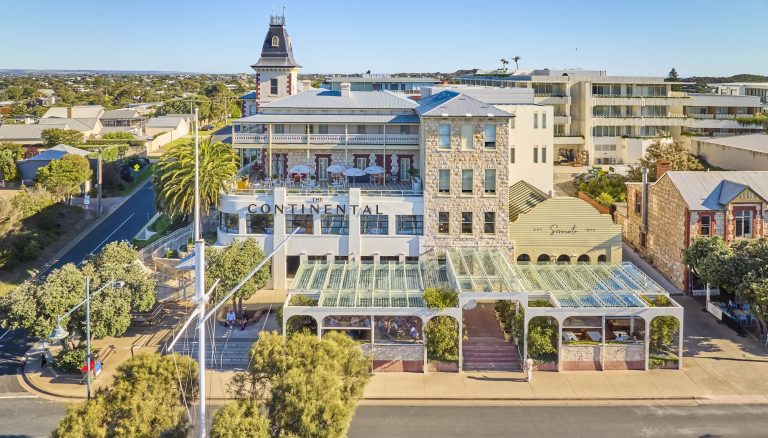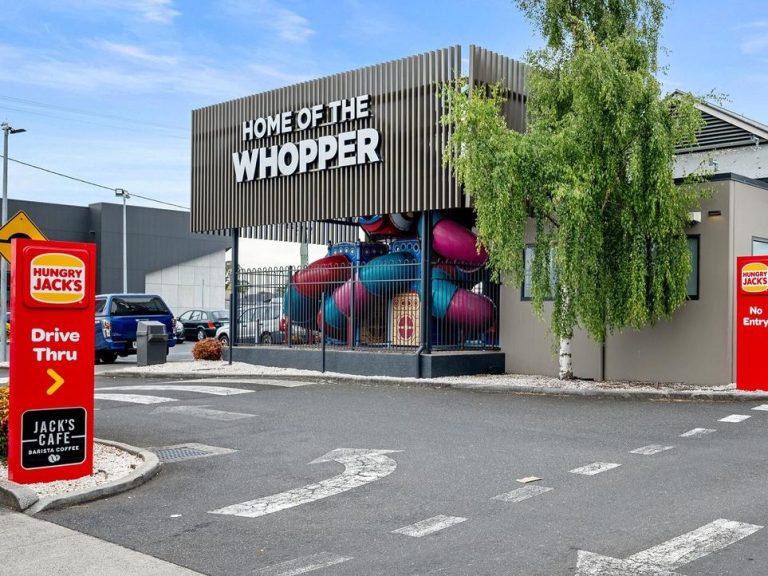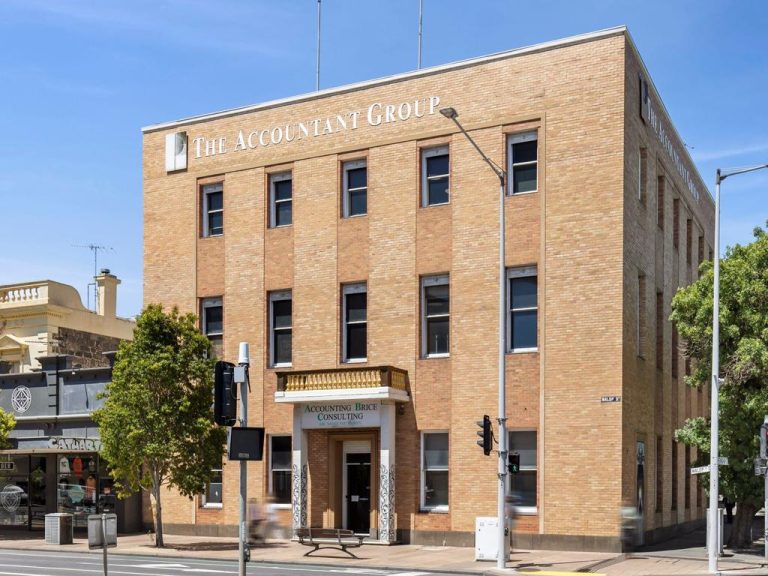Norton Street’s identity shift: Will Little Italy survive?
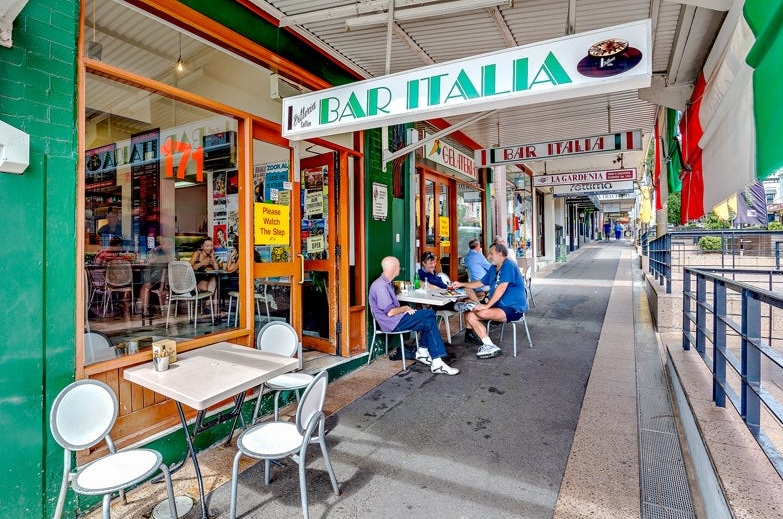
Leichhardt’s cultural identity is changing, so what does that mean for the traditional heart of Sydney’s Italian community?
On a drizzly Saturday in October, thousands of Sydneysiders braved the weather and flocked to Leichhardt for the 39th edition of the Norton Street Italian Festa.
One of Australia’s largest and longest running street festivals, the event marks the annual celebration of the suburb’s Italian heritage, featuring live entertainment, cooking demonstrations and an array of local food offerings.
Ilario Ventolini, president of Viva Leichhardt, told realcommercial.com.au the festival drew its biggest crowd in a decade, with an estimated turnout of around 200,000.
“The police said there was around 180,000, but their guess is always a little more conservative. I can tell you that at 9:30 in the morning there were already 40,000 people on the street and we hadn’t even opened yet. It was unbelievable.”
Like many high streets in Sydney and across Australia, Norton Street has weathered its share of ups and downs, from its bustling mid-century heyday as the beating heart of Sydney’s Italian community, to a present shaped by gentrification, shifting demographics and a slower pace of trade.
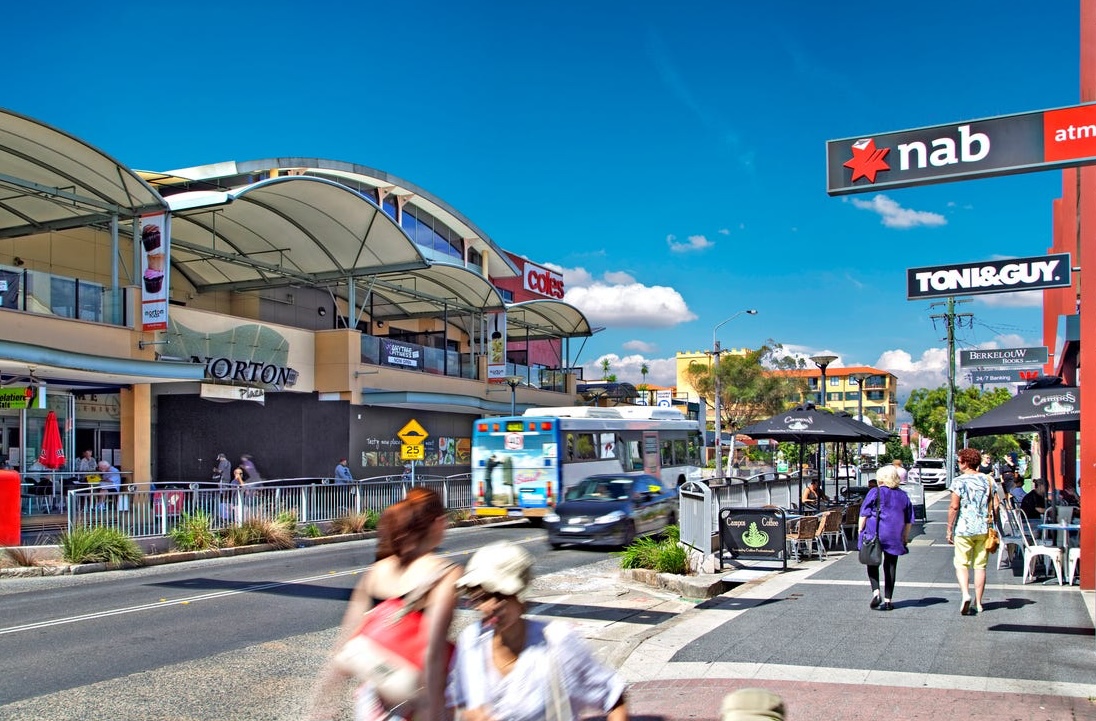
The pace of trade on Norton Street in Leichhardt has slowed in recent years. Picture: realcommercial.com.au
In 2001, Inner West Council officially designated the precinct around Marion and Norton streets as ‘Little Italy’. Shortly after, Norton Street began to grapple with an identity crisis.
“It had a major slump in the mid-2000s, but the momentum is coming back,” insists Mr Ventolini, a self-confessed ‘inner westie’ who has owned local institution Moretti Ristorante since 1997.
Norton Street Italian Festa might draw thousands once a year, but does it reflect the demographic and everyday reality of the strip in 2025?
“It’s an important tradition celebrated since the Italians first migrated to the area,” says Mr Ventolini.
“And these days we’re not only celebrating the Italian heritage, but the vibrant, diverse and welcoming community we are today.”
The place to be
While the title Little Italy was officially conferred in 2001, the name dates to the post-World War II era, when thousands of Italian migrants settled in Leichhardt and neighbouring suburbs of Annandale, Haberfield and Five Dock.
Norton Street became the area’s cultural and commercial heart, bustling with Italian cafés, trattorias, delis and social clubs.
In the 1970s, Mr Ventolini was among many locals who spent his weekends on the strip with family.
“I must’ve been three or four years old, holding my mother’s hand as we went from shop to shop. We’d shop for mortadella, salami and Italian produce, then stop for a coffee or gelato afterwards,” he recalls.
“Mum would make friends with the owners and many of them would only speak Italian, as they were still learning English. There was such a strong sense of community. I think that’s where my love of food began.”
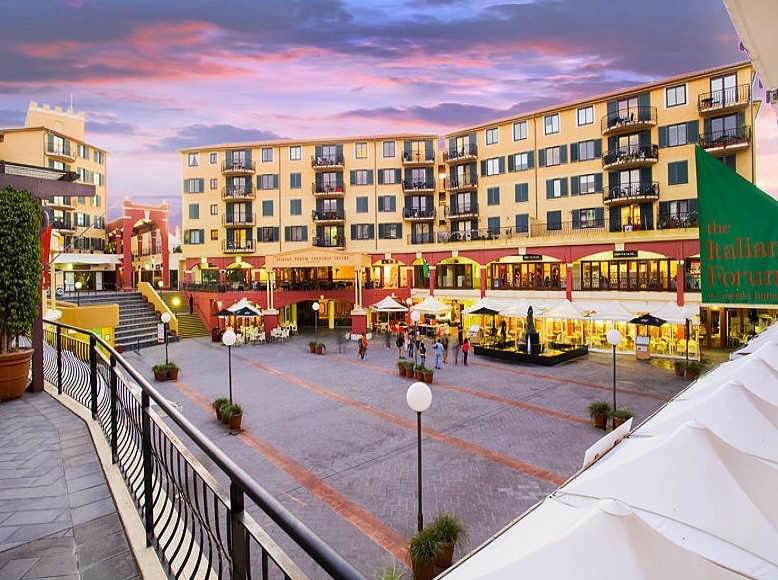
The Italian Forum once hosted many restaurants, but has quietened in recent years. Picture: realcommercial.com.au
Charlie Pignataro of Il Cugino Pizzeria remembers the same energy as a young boy during the 1980s.
“If you were Italian, or simply wanted good Italian food, this was the place to be,” he says. “The strip was always humming past midnight with so many people. There was always life, always something happening.”
Back then, Il Cugino Pizzeria was one of dozens of Italian restaurants lining Norton Street. Today, Charlie Pignataro reckons only a handful remain.
“Along with Moretti’s, I think we’re one of the last ones that is still family-run,” he says.
“We’ve been here 37 years. Bar Italia across the street was around before us, but they’ve changed hands a few times. We’re still the same people, but everyone else has long gone.”
Changing faces of Little Italy
According to the Australian Bureau of Statistics, the number of Italian-born residents living in Leichhardt has steadily declined over the past few decades, from 493 in 2016 to 371 in 2021, representing only 2.4% of the suburb’s population.
Over the same period, those identifying as having Italian ancestry also dropped from 4,584 to 3,883.
Mr Pignataro doesn’t need statistics to understand how the area has changed.
“I’m sure Leichhardt is losing its Italian identity, but if you’re a local, it’s probably for the best,” he admits. “Before you could only get Italian food – now you’ve got Japanese, Spanish, Greek, Thai. There’s also a Korean barbecue that’s just opened and there’s still plenty of bars.”
“Don’t get me wrong, I love my business I run with my Mum. She makes the best pasta in the world. But having more variety and diversity is a good thing.”
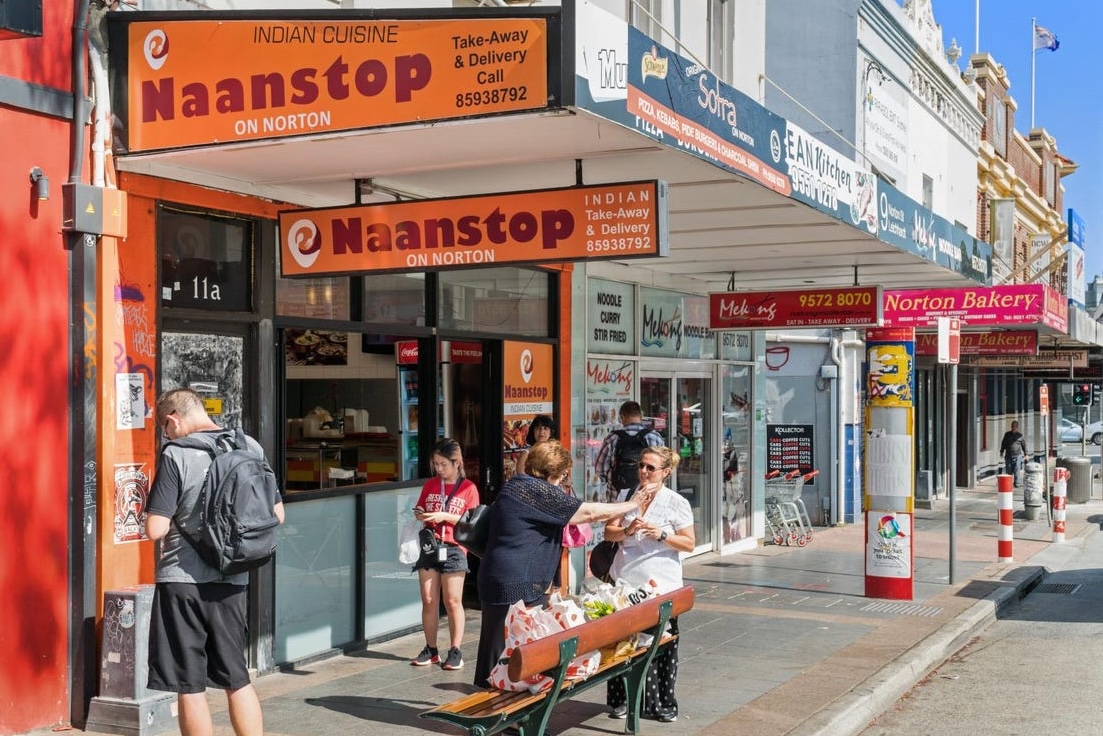
Norton Street is no longer dominated by Italian restaurants. Picture: realcommercial.com.au
Conversely, between 2011 and 2021, the proportion of Leichhardt residents reporting Italian ancestry actually rose from 4.7% to 6.9%, suggesting some Italian Australians may be heading back to the suburb their parents or grandparents once called home.
Buyer’s agent Nick Viner, who lives locally, says the suburb’s demographic is shifting in other ways too.
“Ten years ago, it was people in their early thirties moving in. Now it’s more late thirties, according to the most recent census. And if we’re talking trends, I’ve definitely noticed more downsizers coming into the area,” he told realcommercial.com.au.
Mr Viner has also noticed a much quieter Norton Street in recent years.
“There are still some great restaurant stalwarts on the strip, but things tend to wind down much earlier these days.”
Mr Pignataro agrees.
“We close around 9pm now, because after that business pretty much slows down. I don’t know if people just got used to going to bed earlier or spending less after COVID – it’s hard to say.”
A stage for renewal
Perhaps Norton Street’s most noticeable change has been the decline of the Italian Forum – a once lively piazza-style hub of cafés, restaurants and community life.
When first marketed in 1989, the mixed-use centre was billed as a place that would “meet the cultural needs of the community and revitalise the economic and aesthetic viability of the Leichhardt Town Centre.”
And for years, it lived up to that promise. But by the mid-2000s, the Forum’s energy had begun to wane.
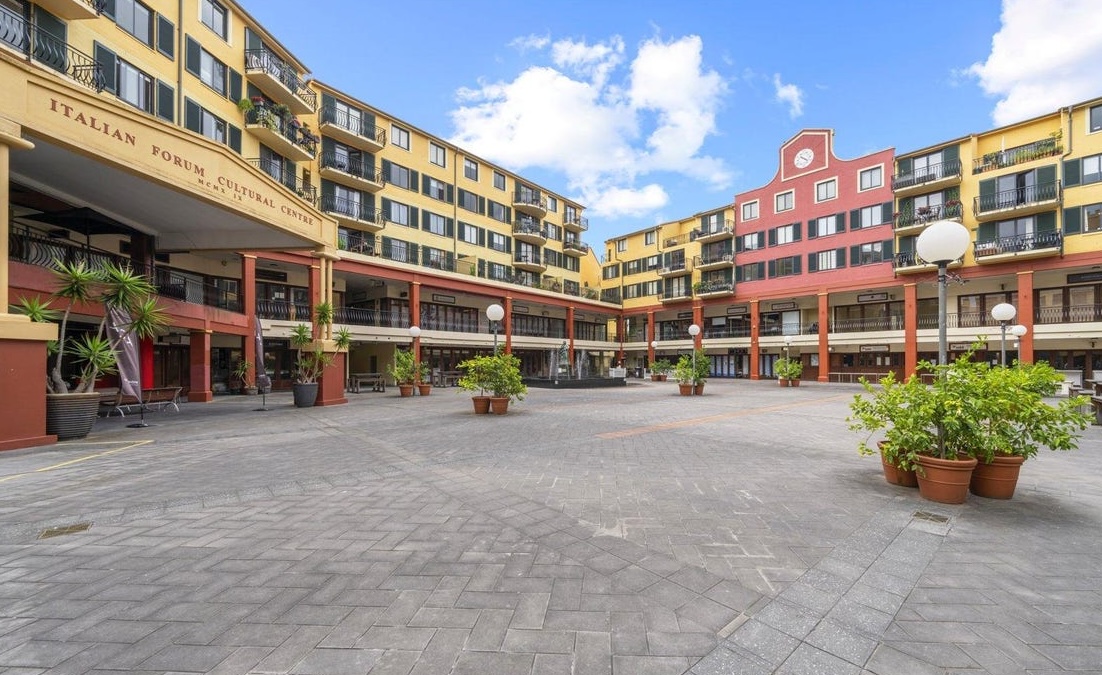
The once-lively Italian Forum is no longer filled with crowds. Picture: realcommercial.com.au
In 2023, Italian community organisation Co.As.It sold major portions of the site to property developer Bob Patterson, owner of the Pickled Possum bar in Neutral Bay. Despite early assurances that he would reinvigorate the complex, locals say little has progressed.
The downturn has been mirrored in property values. The site of La Giara Italian – the Forum’s last remaining Italian restaurant – sold for $423,000 in 2024, down from $499,950 when it last changed hands in 1999.
Much like strata-titled shopping centres, where years of disputes and stalled redevelopment can leave precincts in limbo, the Forum remains caught in uncertainty, gradually being sold off in pieces with no clear vision for its future.
But there are glimpses of hope.
The arrival of Teatro, a new 300-seat indoor theatre led by internationally acclaimed creatives Nathan M. Wright and Andrew Bevis, has sparked some renewed interest.
The theatre’s first production, a sold-out four-week run of The Addams Family, has drawn hundreds of visitors back into the precinct of late.
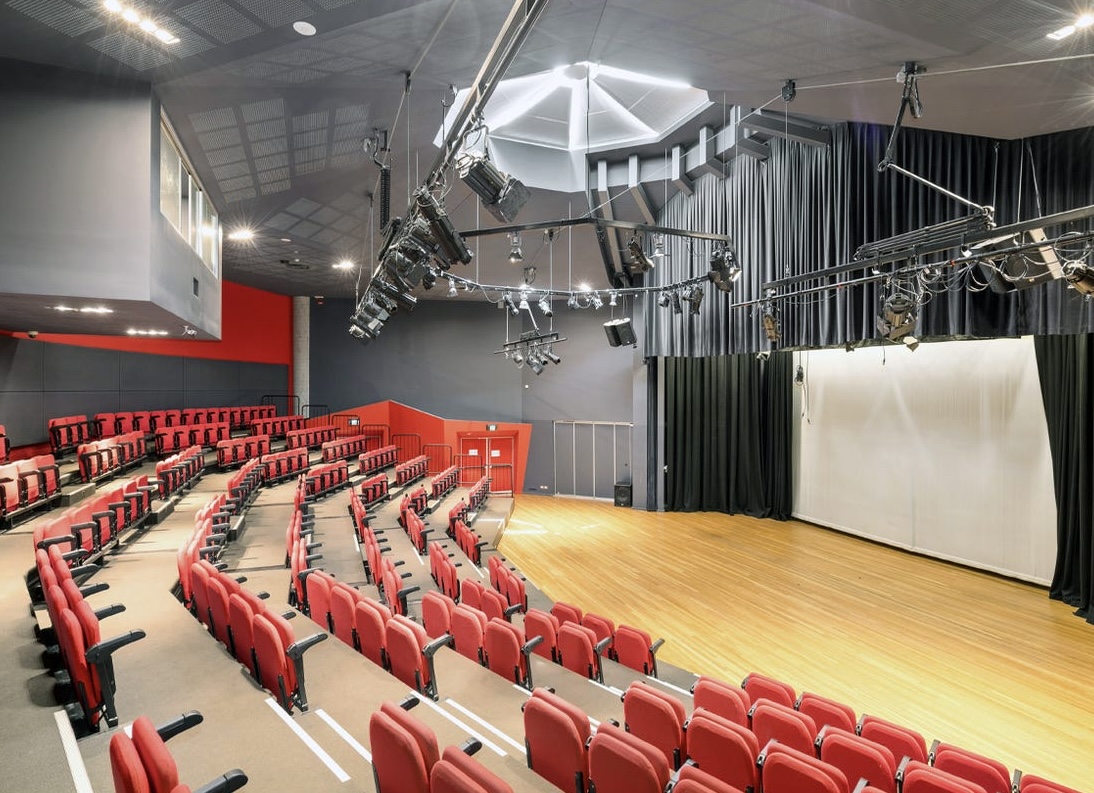
Teatro, a new theatre which has opened in the Italian Forum in Leichhardt, could help revitalise the district. Picture: realcommercial.com.au
“They’re bringing some life back into the Forum, which is fantastic,” says Mr Ventolini.
“To see five hundred people there for a Saturday matinee or a Sunday evening show; it’s given the area a much-needed boost. It’s exactly the kind of thing that could encourage restaurants to reopen in the piazza.”
Keeping the vibe alive
In 2024, Leichhardt was one of 32 districts to receive between $100,000 and $200,000 under the NSW Government’s Uptown District Acceleration Program – an initiative aimed at helping local businesses revitalise high streets and reinvigorate community hubs.
For Mr Ventolini, the annual Norton Street Italian Festa remains central to that mission.
“Next year is the 40th anniversary and we are looking to expand into the nighttime,” he says.
“It’s the longest running and largest street festival in Australia, so we have to make it something special. When tens of thousands of people come to Norton Street who haven’t been here in years, it rekindles memories and hopefully they keep coming back to support local businesses.”
Charlie Pignataro agrees and thinks everyday changes would also make a big difference.
“Cheaper rents and more parking would be great. On a Friday night when I’m making pizzas, I’ll look out the window and see customers who’ve booked tables circling the block trying to park. If they could fix that, it would really help.”

